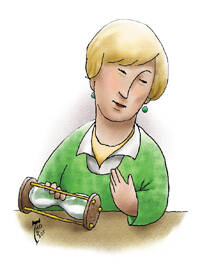Jesus Comes
May 21, 2011, marked the clear and unmistakable return of Jesus Christ and the Day of Judgment. At least this was the message promoted by Harold Camping of Family Radio. You may remember the nationwide billboard campaign informing and warning us. A few believers gave away their personal property to friends, neighbors and even strangers. Let’s face it, you do not need your BMW after the rapture. On May 23 Camping triumphantly announced that he had been right. Christ did come, albeit spiritually, and the last judgment did happen, although performed in secret. As for the physical rapture, that would happen “beyond a shadow of a doubt” on Oct. 21, 2011.
This move was not original. In the 19th century William Miller gathered fellow Christians to await Christ’s coming sometime no later than March 21, 1844. When that day passed, a follower of Miller discovered a “tarrying time” revealed in Habakkuk that would delay the date until Oct. 22, 1844. Seventh Day Adventists are Miller’s followers who believe the expectation was fulfilled but as a heavenly “investigative judgment” of the world.
In terms of an imminent rapture, Camping and Miller have more in common with St. Paul than the rest of us. He, too, thought that Jesus’ return was looming, even in his lifetime (1 Thes 4:17). One sees this conviction throughout First Corinthians, particularly in our reading today. Paul begins this small passage with “the time is running out.” Then he strings together five “as [if] not” scenarios. Taken literally, they are senseless: “Let those having wives act as not having them, those weeping as not weeping…those buying as not owning.” Taken collectively, however, their rhetorical power brings home the last line: “For the world in its present form is passing away.”
Paul’s urgency reflects Jesus’ first day of ministry. Mark says that he began by announcing: “This is the time of fulfillment. The kingdom of God is at hand. Repent, and believe in the gospel.” In both texts, the word used for time is kairos. Chronos is simply ongoing time. But kairos often connotes a heightened time of opportunity or a crisis. Something important is happening now! Jesus proclaims the imminent salvation of God. He then demands that they (and we) repent. Repentance (metanoia) is not merely a moral call to stop sinning. Rather, it refers to reorienting one’s mind, heart and life toward God. The kingdom is about transformation.
Mark’s description of Jesus calling his first disciples expresses the power of the Lord’s call and the imperative to respond here and now. On the shores of Galilee, Jesus sees Peter and Andrew. “Come after me,” he commands. Then he sees James and John and likewise calls them. Mark tells us that both pairs dropped their nets and immediately followed him. James and John even abandoned their father right there in the boat.
Harold Camping and William Miller were wrong. And while Paul did not dare to set a date for Christ’s return, his expectation that the last judgment day would happen in his lifetime was obviously misplaced. On the other hand, at least with regard to the preaching of Paul and Jesus, we do well to see the Gospel as creating a kairos in our lives. The power of the Gospel and the imperative to turn our whole lives to God means that there is never mere chronos without the possibility of kairos.
Do we have the spiritual imagination to be totally immersed in the world, its joys, beauty, needs and its demands for justice and at the same time to see these as the last days? Christ’s definitive covenant means that it really is the end times—that is, the last stage of salvation history. The end times does not mean we drop the ball on the world. Rather it means we engage it with the power and urgency of the Gospel.
This article also appeared in print, under the headline “Jesus Comes,” in the January 16, 2012, issue.








